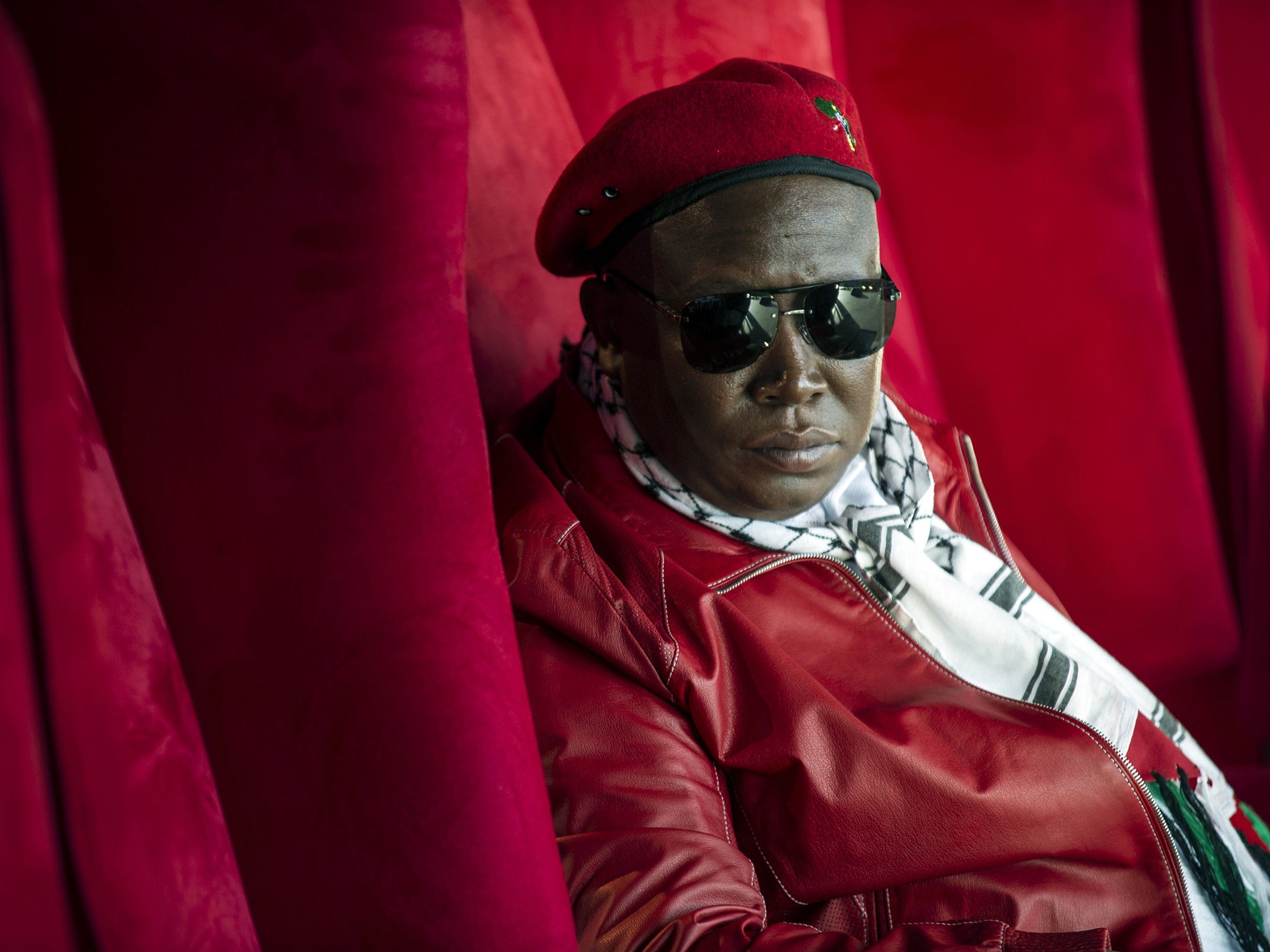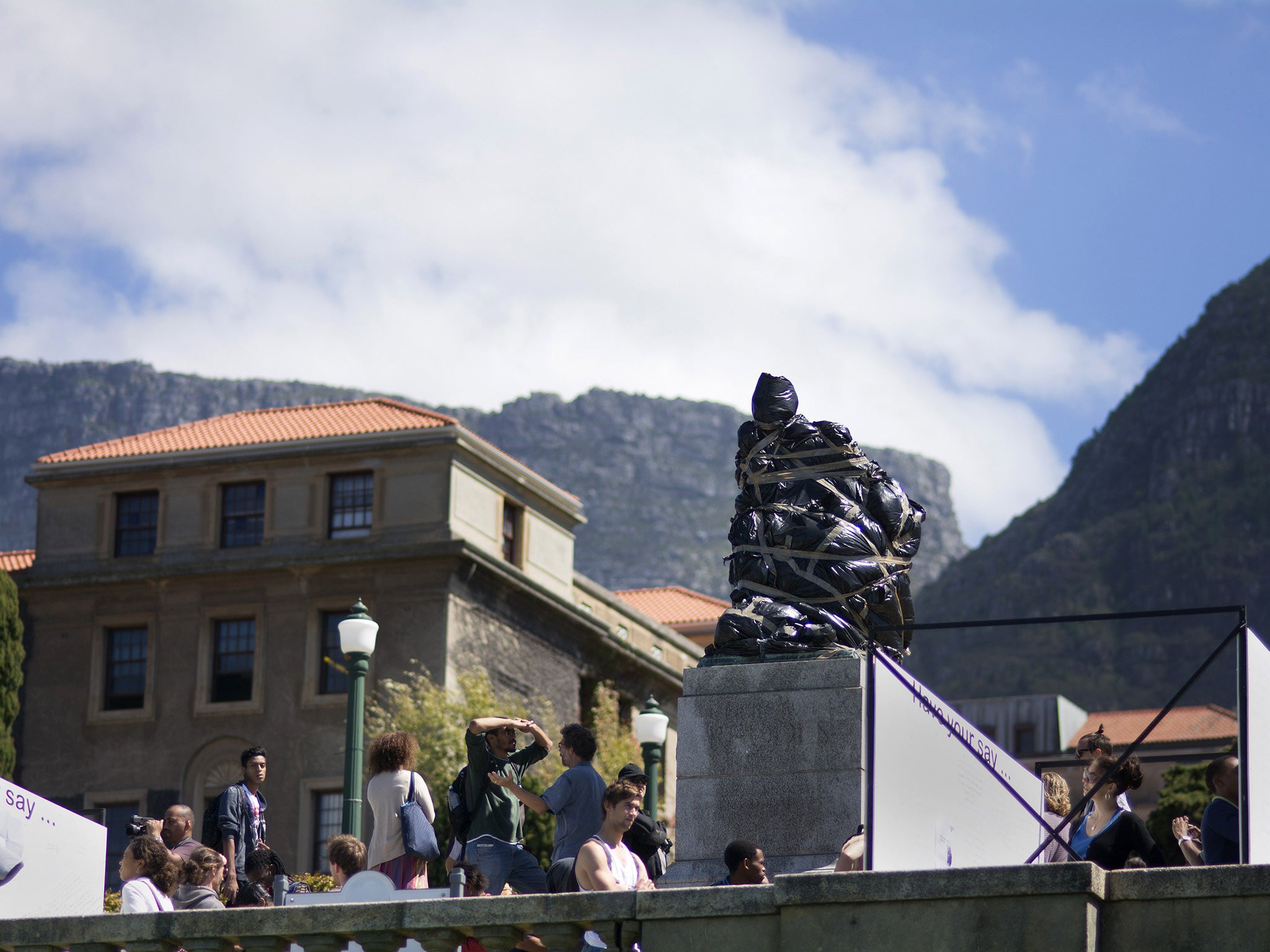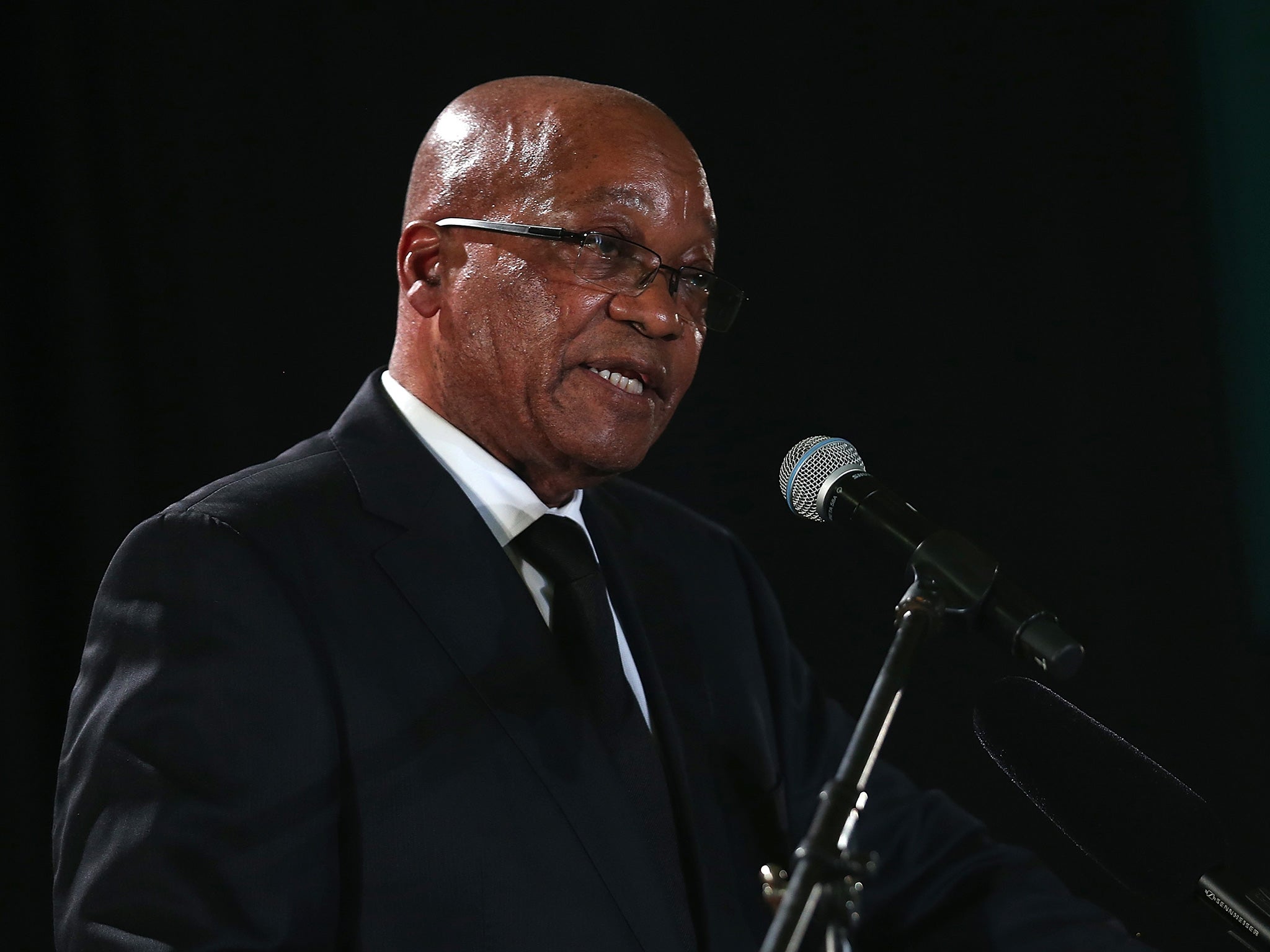An audience with Julius Malema - the man who would tear down South Africa
In an exclusive interview, former ANC firebrand Julius Malema tells Lawrie Holmes of his radical blueprint for a nation

Your support helps us to tell the story
From reproductive rights to climate change to Big Tech, The Independent is on the ground when the story is developing. Whether it's investigating the financials of Elon Musk's pro-Trump PAC or producing our latest documentary, 'The A Word', which shines a light on the American women fighting for reproductive rights, we know how important it is to parse out the facts from the messaging.
At such a critical moment in US history, we need reporters on the ground. Your donation allows us to keep sending journalists to speak to both sides of the story.
The Independent is trusted by Americans across the entire political spectrum. And unlike many other quality news outlets, we choose not to lock Americans out of our reporting and analysis with paywalls. We believe quality journalism should be available to everyone, paid for by those who can afford it.
Your support makes all the difference.Julius Malema is unequivocal about what he and his political party want to do with the statues of Cecil Rhodes and other imperialists dotted across South Africa.
“Those statues have to be removed; we’ve asked the state to remove them,” he tells The Independent. “If the state continues to be reluctant on this we will remove them.”
His forthright view marks him out as the one decisive leader in what is fast becoming an explosive subject in South Africa. Protesters across the country have called for the statue at the University of Cape Town to be removed, spawning the hashtag #RhodesMustFall.
Following initial calls from students to take down the statues, the current indecision over what to do with the symbols of colonialism – and, for many, apartheid – is pushing the country into a collective angst about its future after Nelson Mandela. Into this political quagmire enters Mr Malema, who advocates the seizure of white-owned farms as happened in Zimbabwe under Robert Mugabe.
Mention his name to a South African and almost certainly they will offer a quick-fire view of the charismatic, firebrand leader of the EFF (Economic Freedom Fighters) party.
Many fear him, believing he is a dangerous revolutionary hell-bent on ruining the country’s democratic settlement, in place since 1994, while others says he is the only politician capable of delivering where the ANC has failed. Mr Malema, the former leader of the ANC’s Youth League who launched his party after being cast out of the ANC, has many sides to his enigmatic character. Many of those who dismissed him when he launched the EFF two years ago now realise he is on to something, especially since the party became South Africa’s third largest in last year’s general election.

Key to the party’s success is its ability to appeal to poor black South Africans who feel let down by 20 years of ANC rule that has not delivered on its 1955 Freedom Charter. On nationalising mines and banks, he appears to be on a collision with some of the world’s biggest companies when he invokes the Charter’s demands that “the mineral wealth beneath the soil, the banks and monopoly industry shall be transferred to the ownership of the people as a whole”.
He speaks of a democratic process in parliament where legislation will be passed, “whether we freeze them [banks, mines and industries] or take them by force”. He adds: “We will not be tolerant of any foreign investor who wants to tell us how to conduct the affairs of our country.”
Similarly, with his “expropriation without compensation” position on farmland, Mr Malema is both pragmatic and incendiary. Taking literally the Charter’s calls for “land to be re-divided amongst those who work it” and that “all shall have the right to occupy land wherever they choose”, he says that he offers a fair system for farmers to reapply for land.
But he then says he agrees with the agenda of grabbing white farmers’ land in Zimbabwe, stopping short of admiring Robert Mugabe and his violent methods. He says Zimbabwe will be remembered as the “first example in the history of this continent of Africans owning their own economy and land”.
Mr Malema’s challenge may fizzle out like that of other leftist parties that have splintered from the ANC, which he concedes has a remarkable ability to find its feet at election time. But a combination of factors may boost the EFF’s chances in next year’s municipal elections.
For one thing, outrage over President Jacob Zuma’s personal accumulation of wealth at a time of massive inequality in housing, education and jobs is playing into the hands of the EFF, especially when its MPs were forcibly ejected from parliament in February when confronting Mr Zuma over corruption.
Mr Malema promises follow-ups to the chaotic scene viewed around the world. “That’s what parliament is about – to push hard for truth and accountability,” he says.
Mr Malema declares the ANC “even worse than the apartheid government”. He says: “At least the apartheid government confessed in parliament how many people it had killed.”
But opposing corruption has its difficulties, given Mr Malema’s complicated and high-profile tax dispute, which he says may be resolved by bringing the row to court and releasing details of his finances to the public. He offers The Independent no explanation of how he made significant wealth early on in his political career.
The ANC’s other vulnerability is growing violence within the party that, it is claimed, has led to murders. It is another area that Mr Malema will seek to capitalise on, although his own violent rhetoric has at times inspired supporters aggressively to confront police. “We’re not a violent organisation,” he insists.

Mr Malema reveals the EFF will mount a countrywide campaign preceded by the launching of a student wing. “We are going to contest everywhere in South Africa,” he says, adding that the financial backing will be available to mount a serious challenge.
After years of loyalty to the post-apartheid project in South Africa, increasing dejection about the lack of progress, especially empowering black people, is palpable. Many feel betrayed by an ANC they believe has lost its revolutionary zeal. Without the guiding presence of Nelson Mandela, there is a feeling that change is needed.
South Africa suffers daily imposed power cuts, the result of a creaking energy industry. And most people’s lives are blighted by some form of ineptitude or corruption. It is, Mr Malema says, the right of anyone with a fresh agenda to step forward.
The 34-year-old may be a flash in the pan or he could be a future South African president. A man of many characters, the challenge for him is whether he can be all things to all people.
That involves winning over millions of traditional ANC voters with a new agenda for change while calming other South Africans, nervously eyeing the backlash from capital markets at any hint of political risk in their country.
Mr Malema may still be a long way from holding the reins of power, but his voice is being heard and his thoughts and actions may start influencing decision-making, even from a distance.
Join our commenting forum
Join thought-provoking conversations, follow other Independent readers and see their replies
Comments